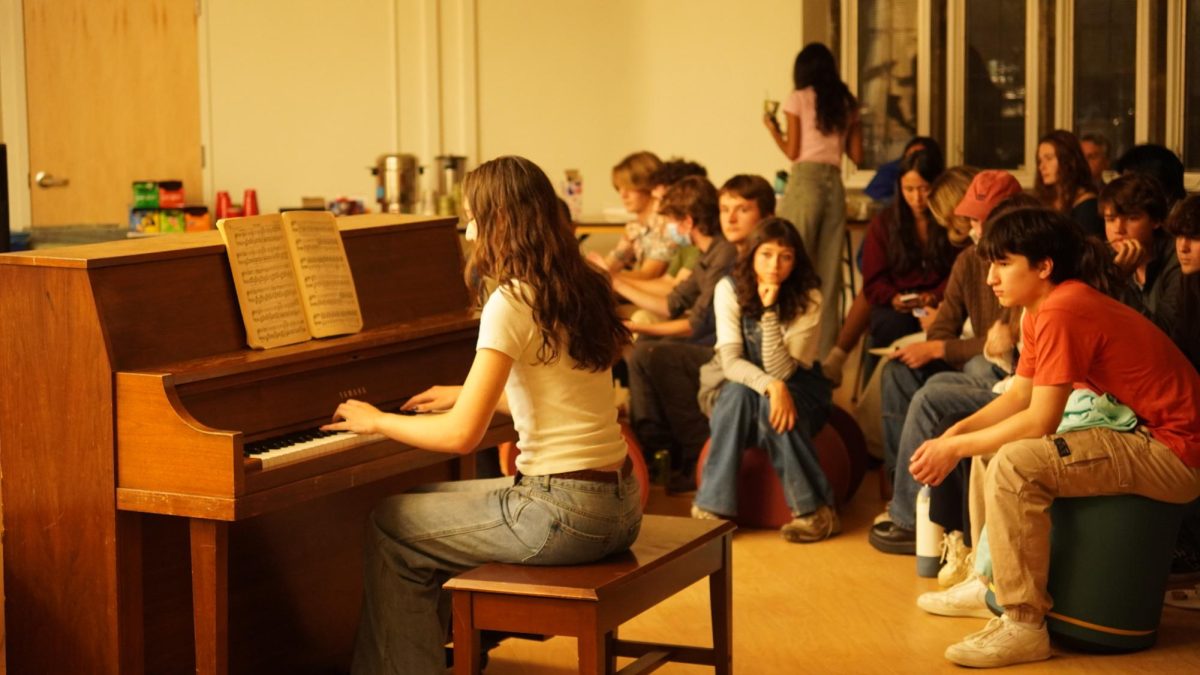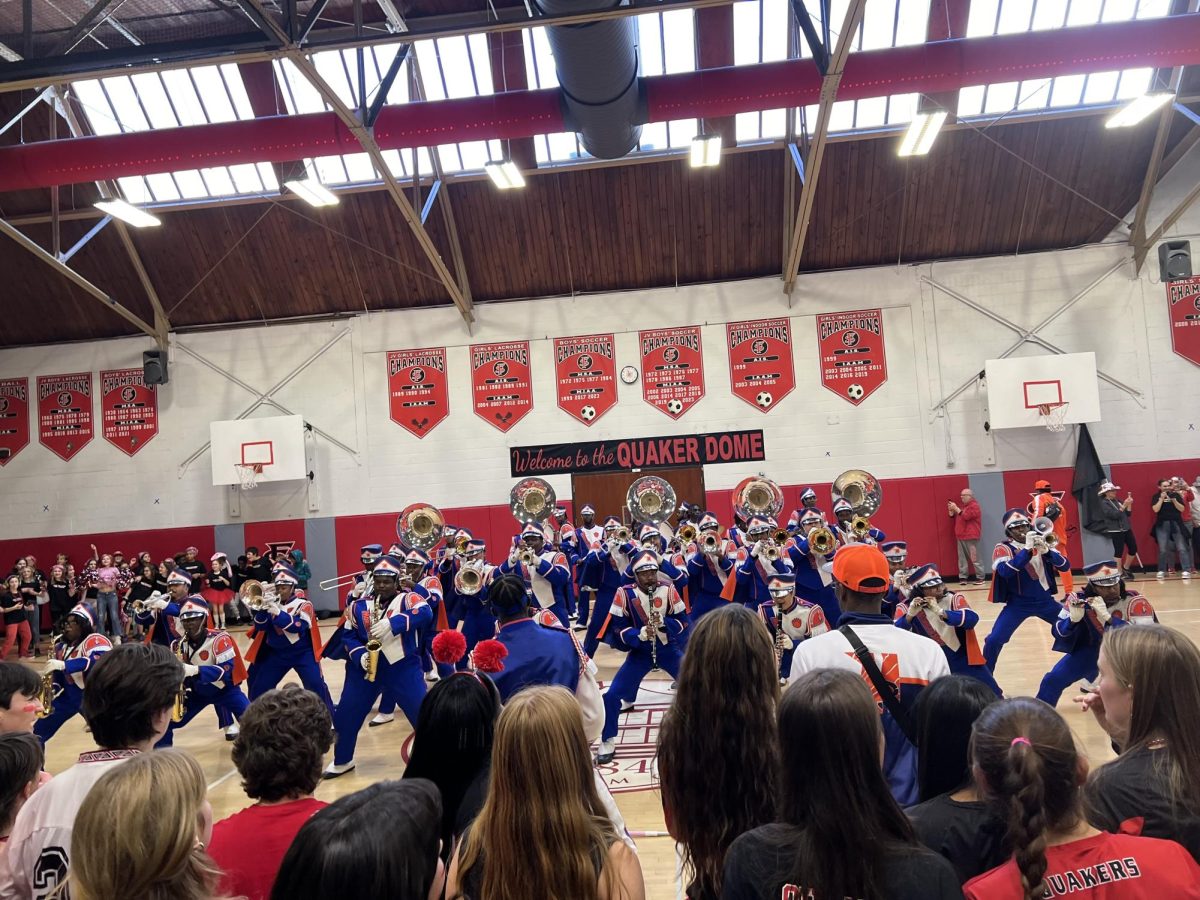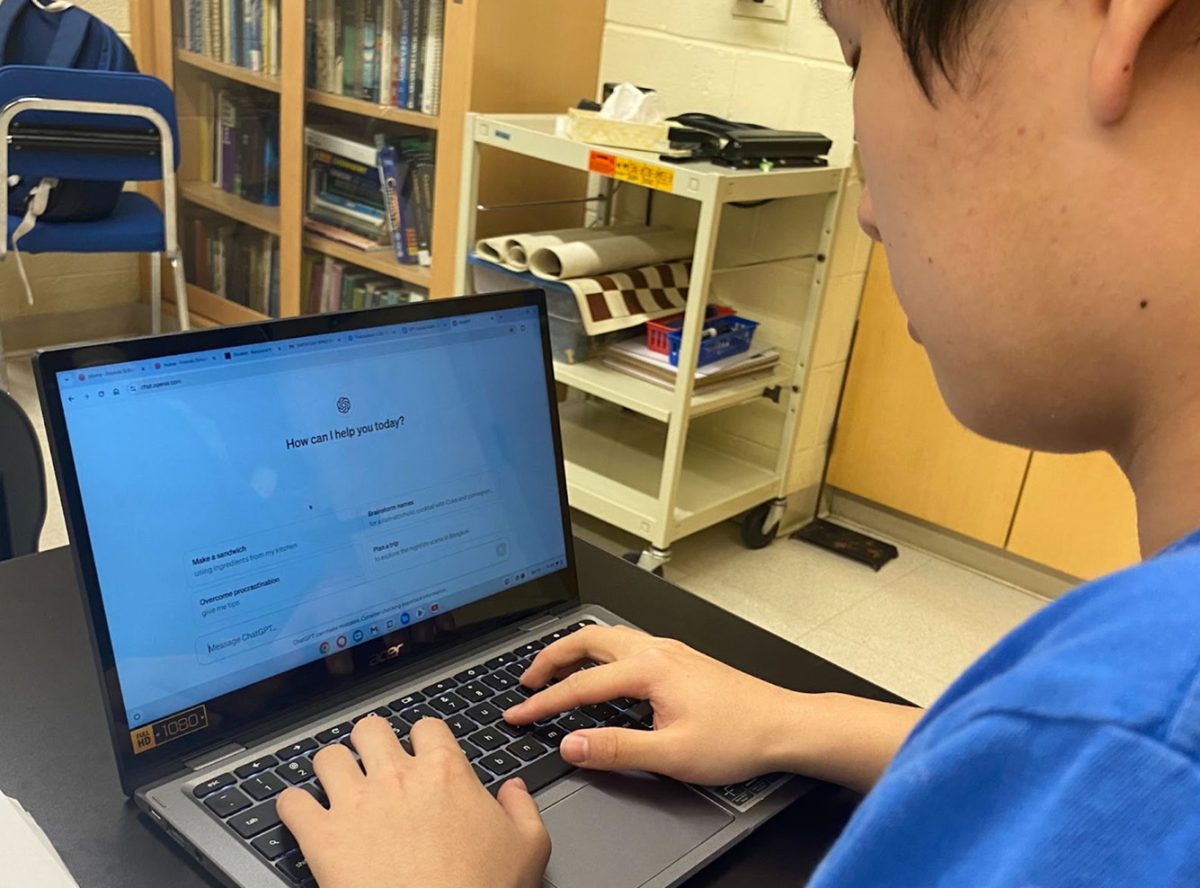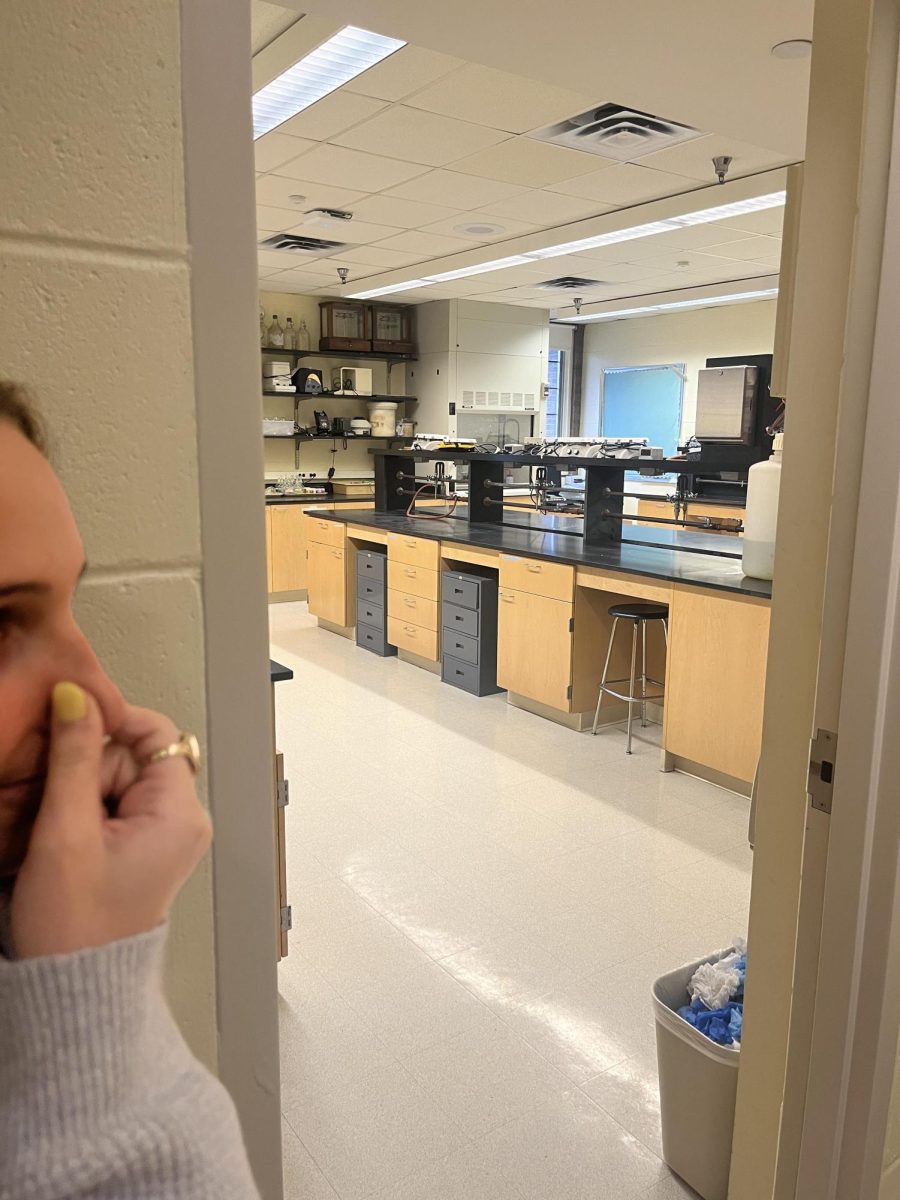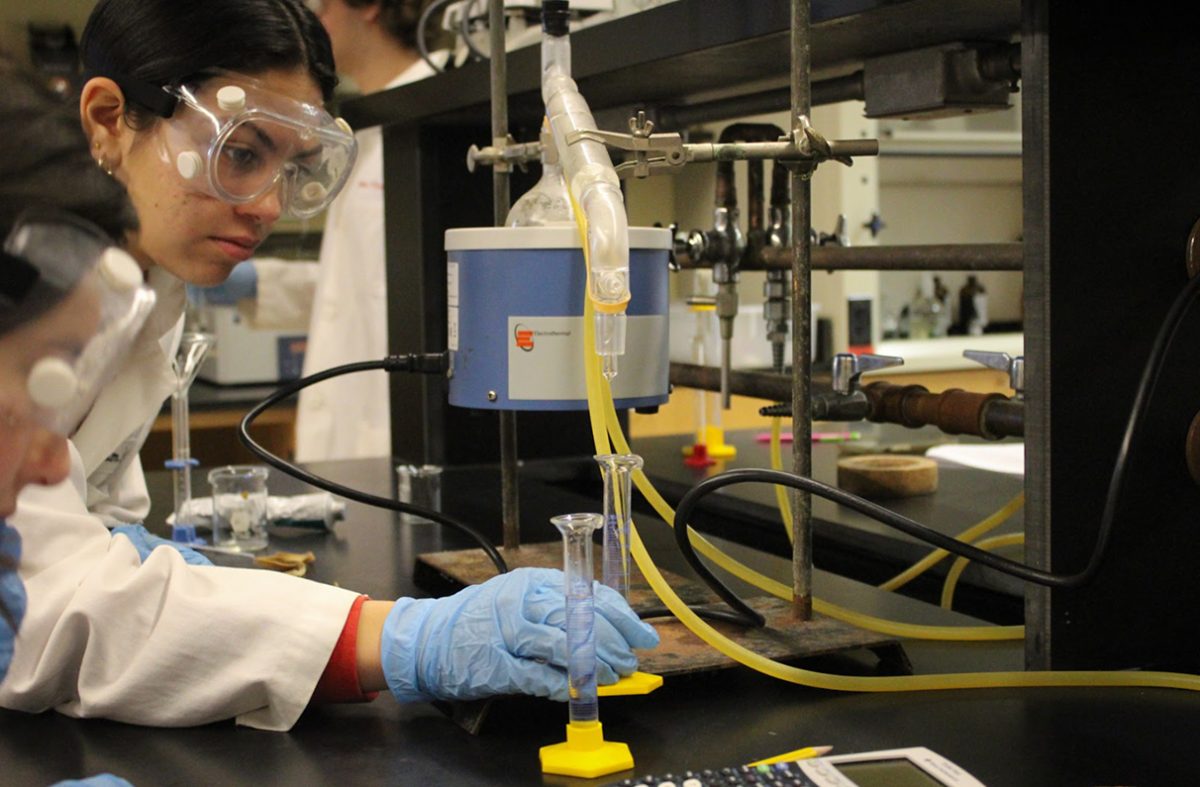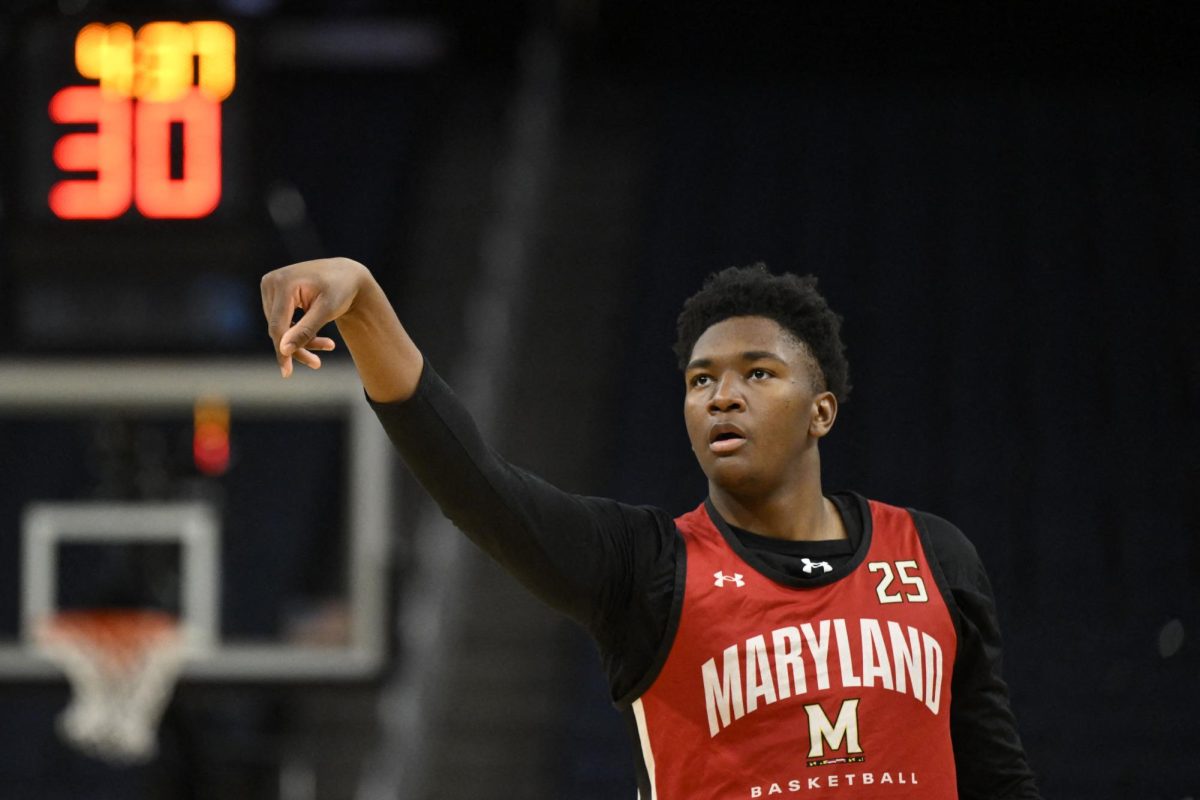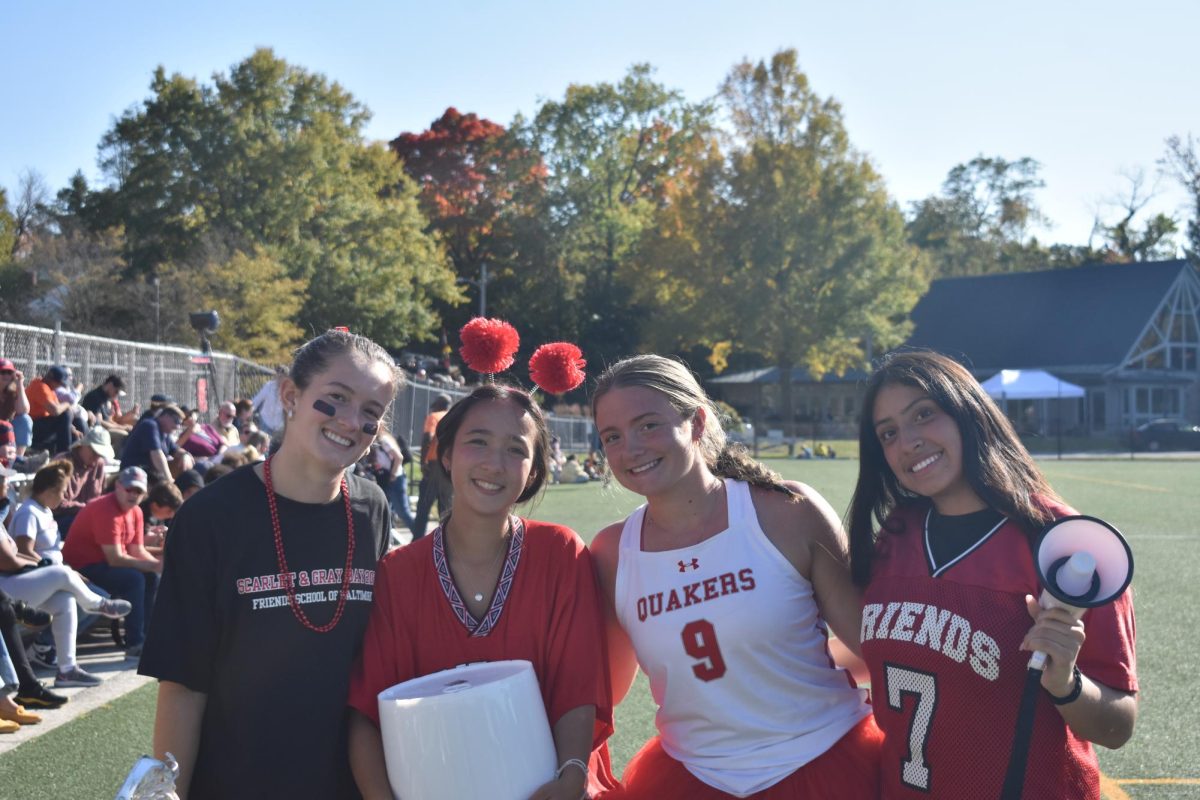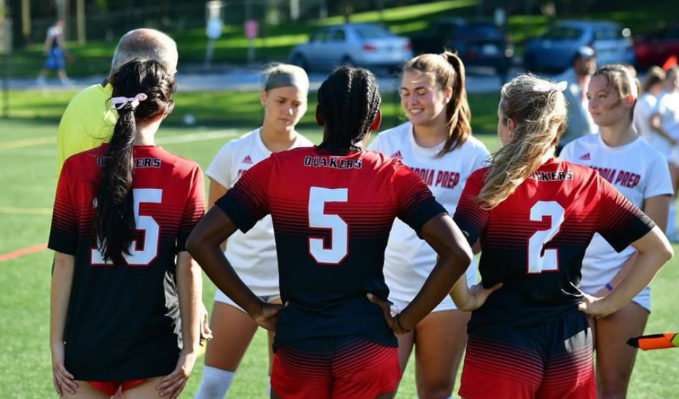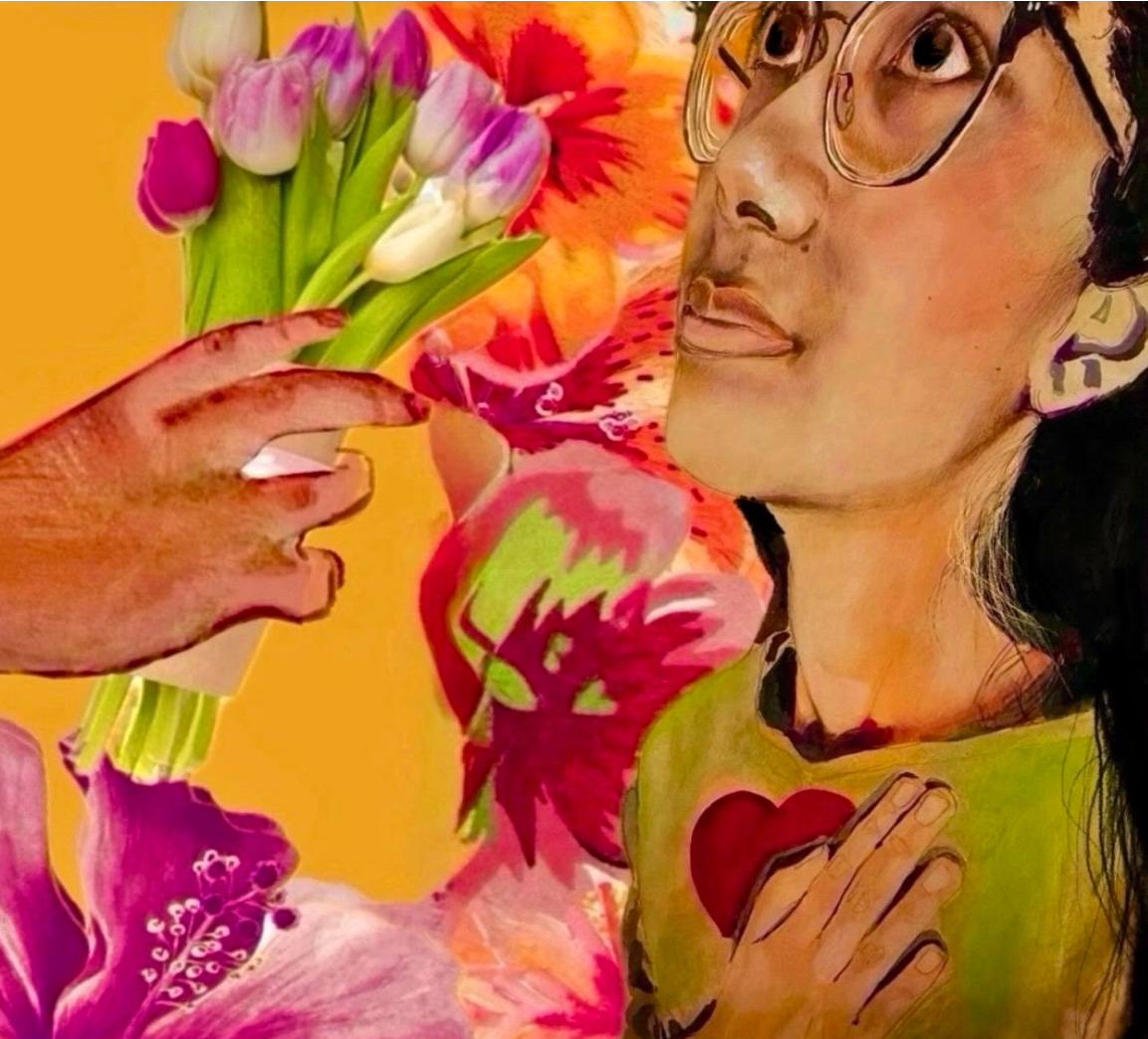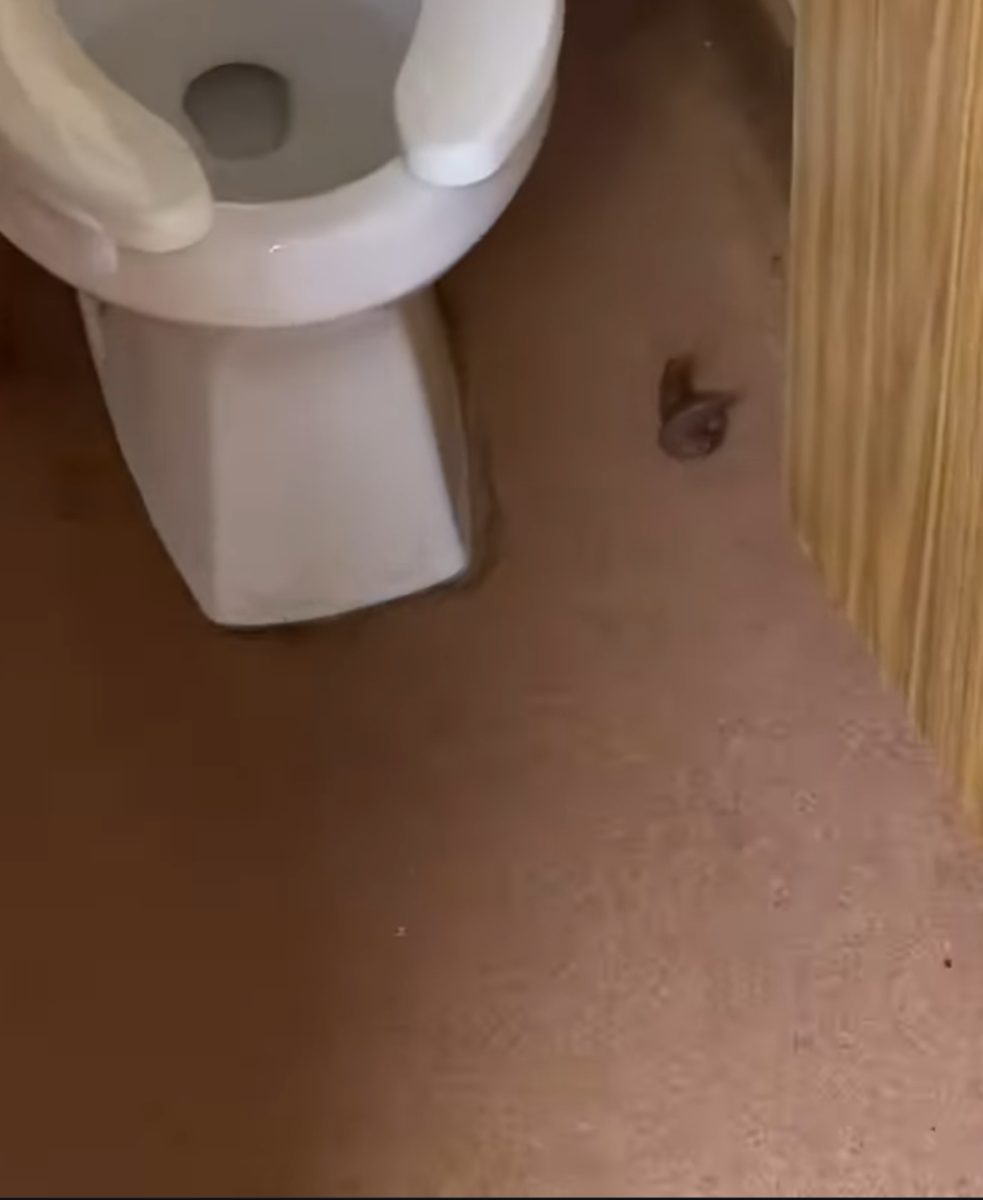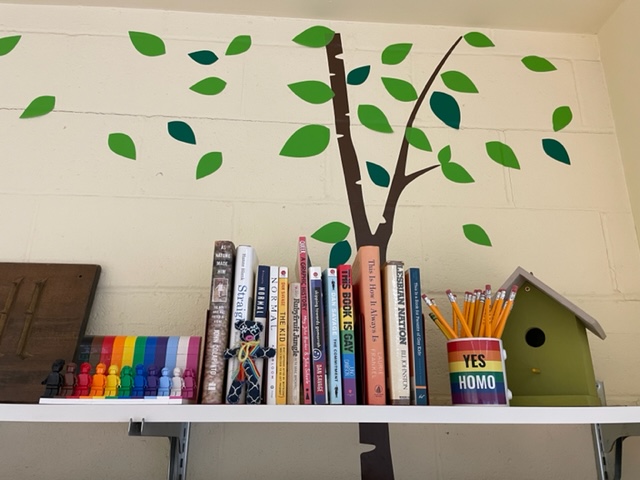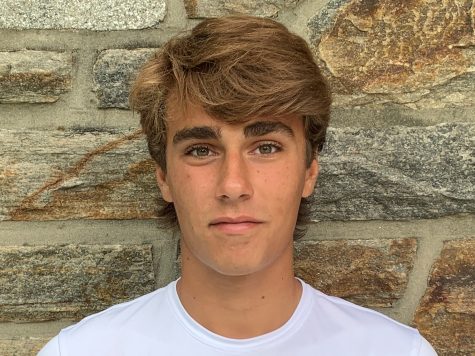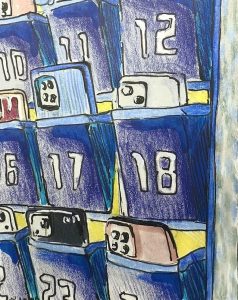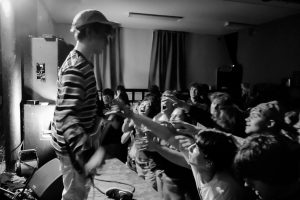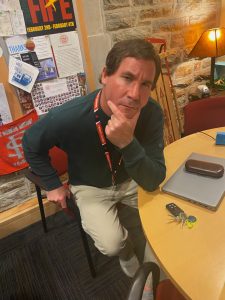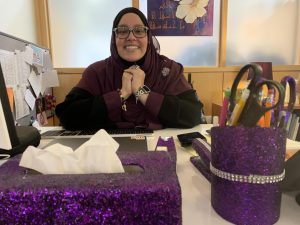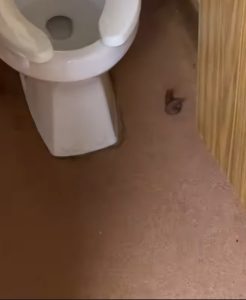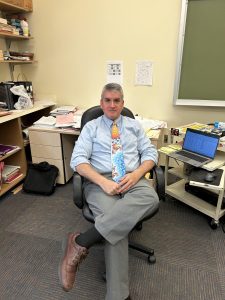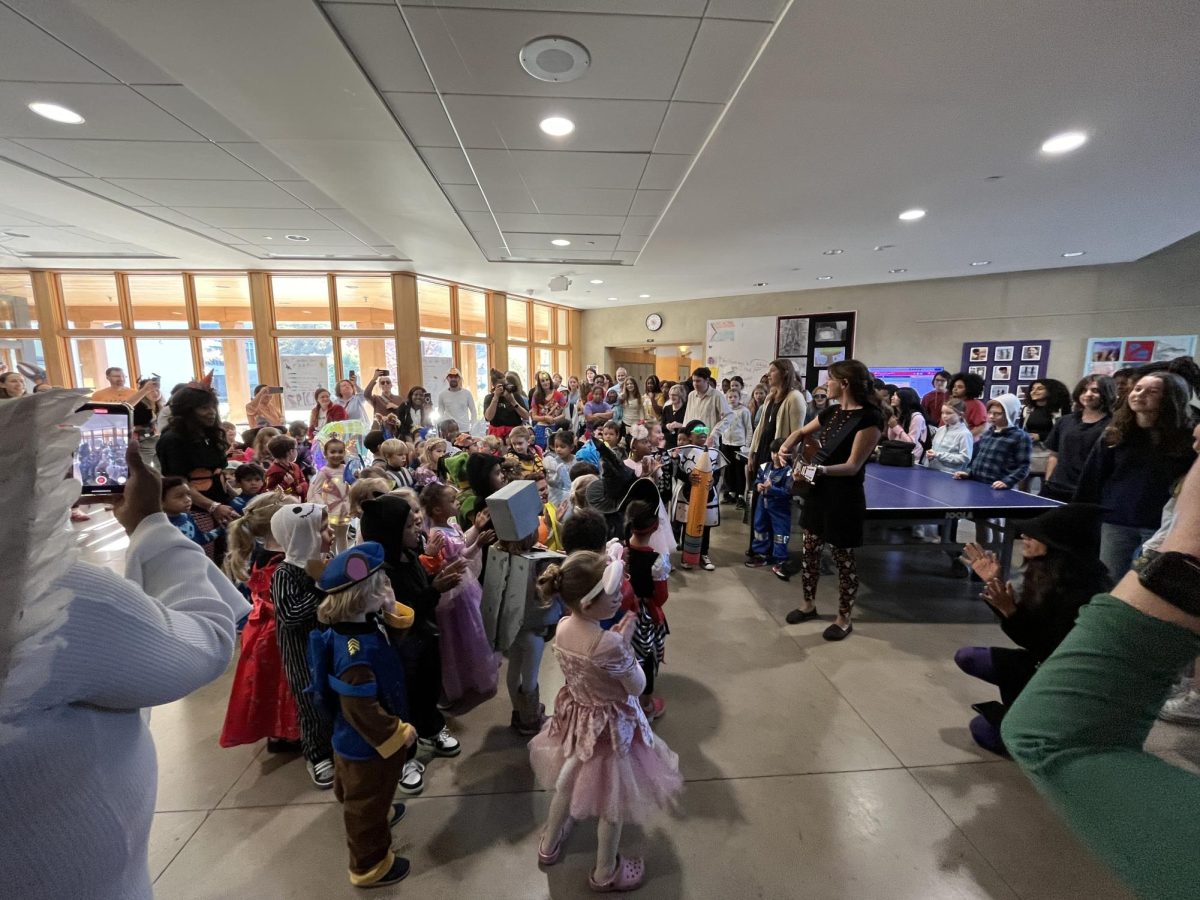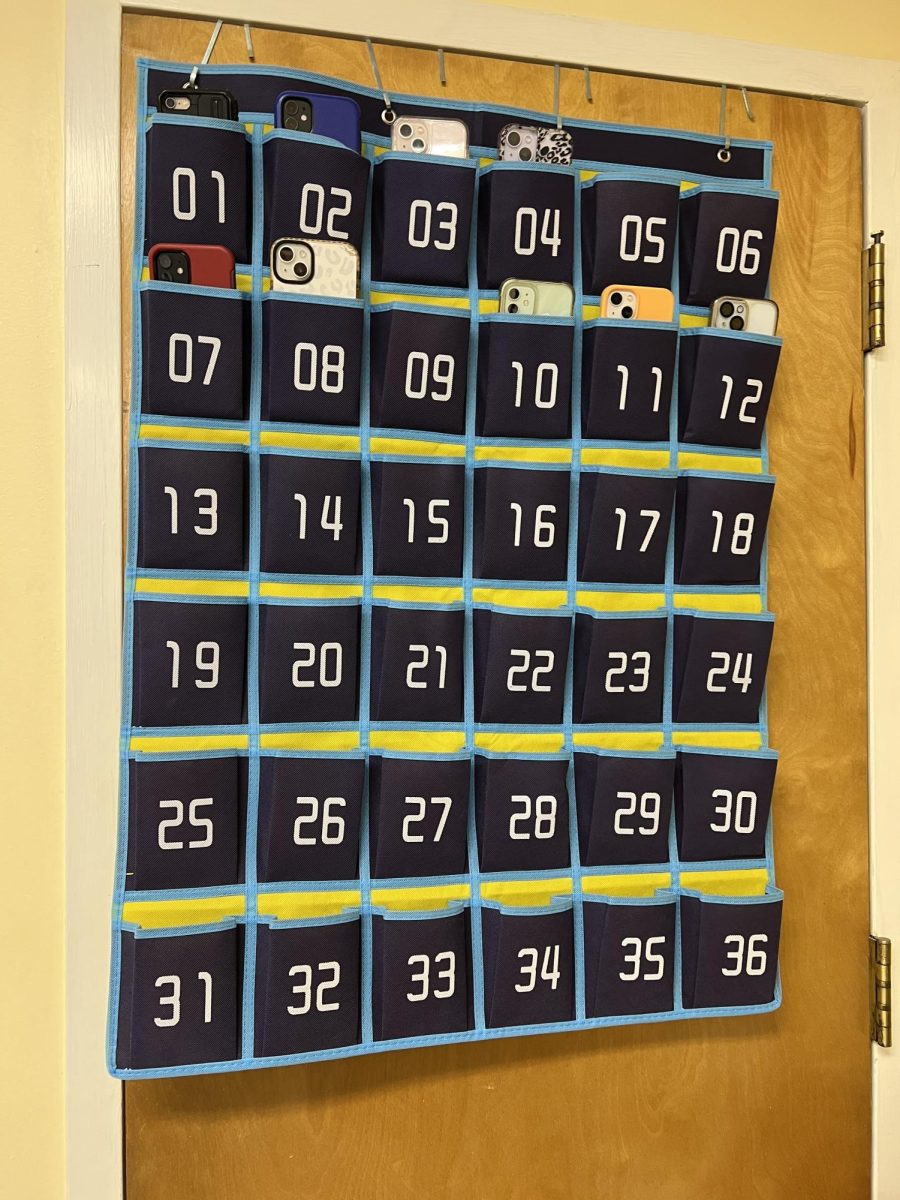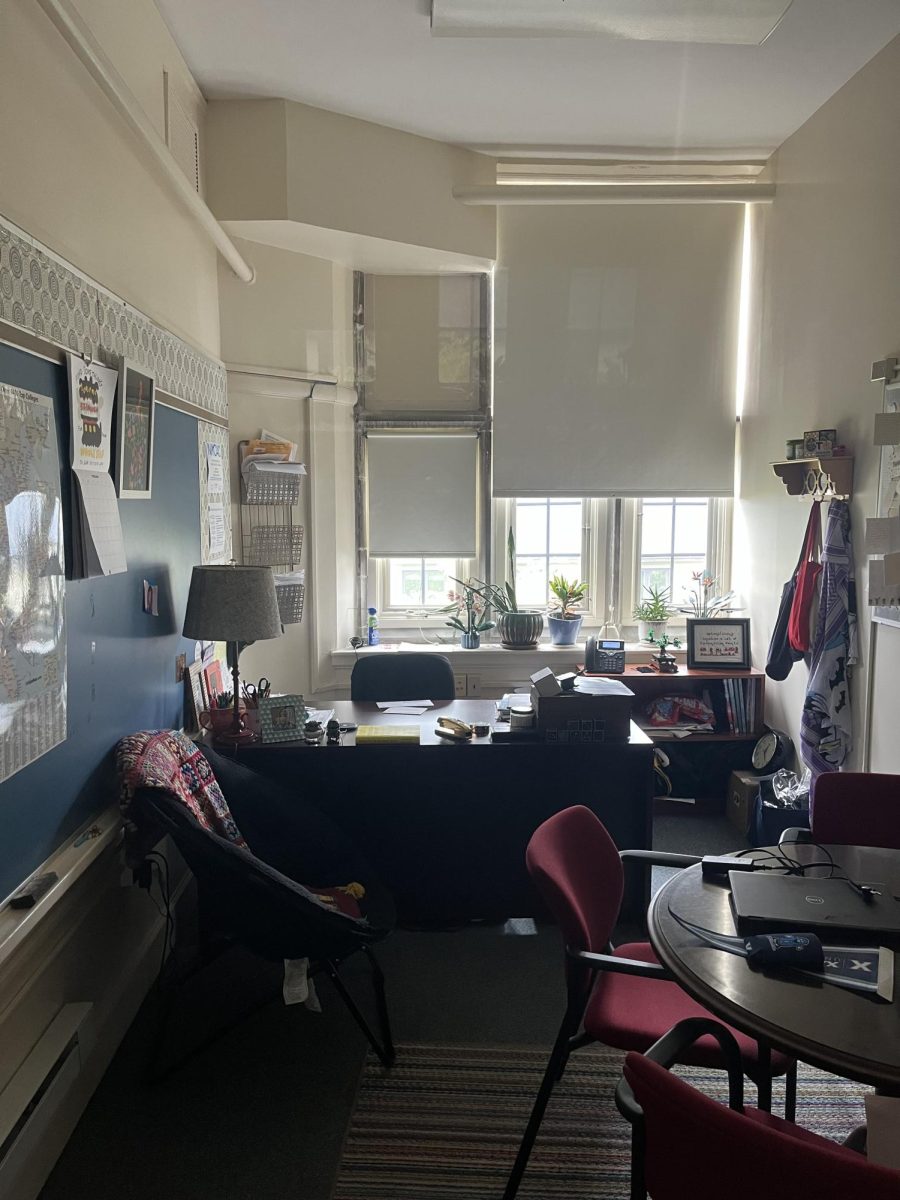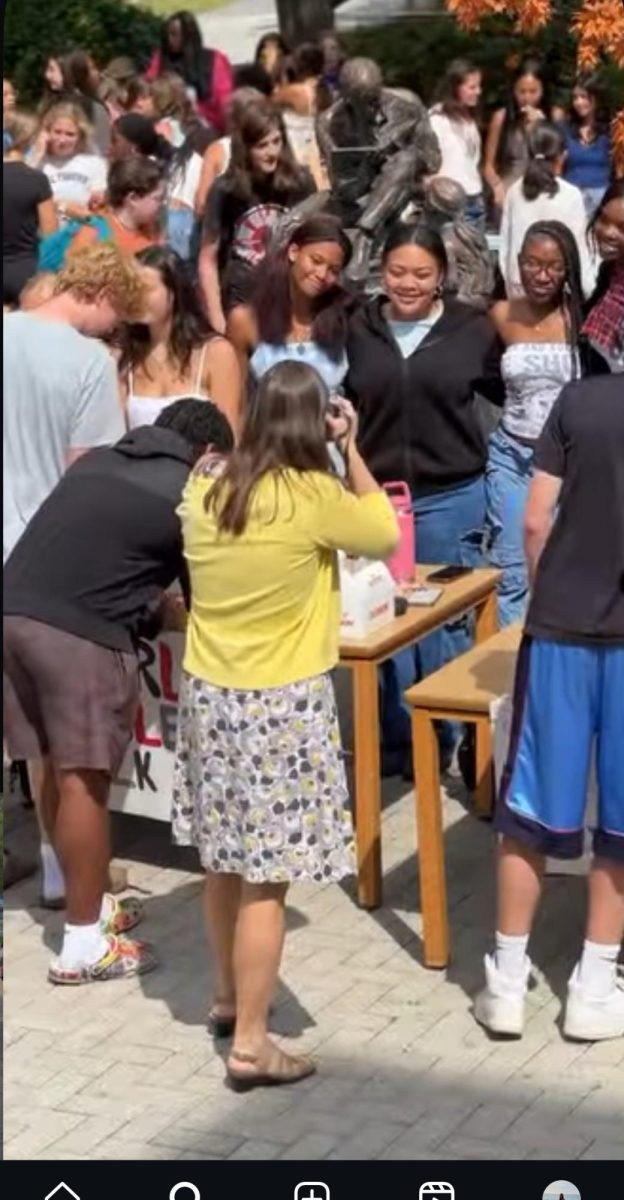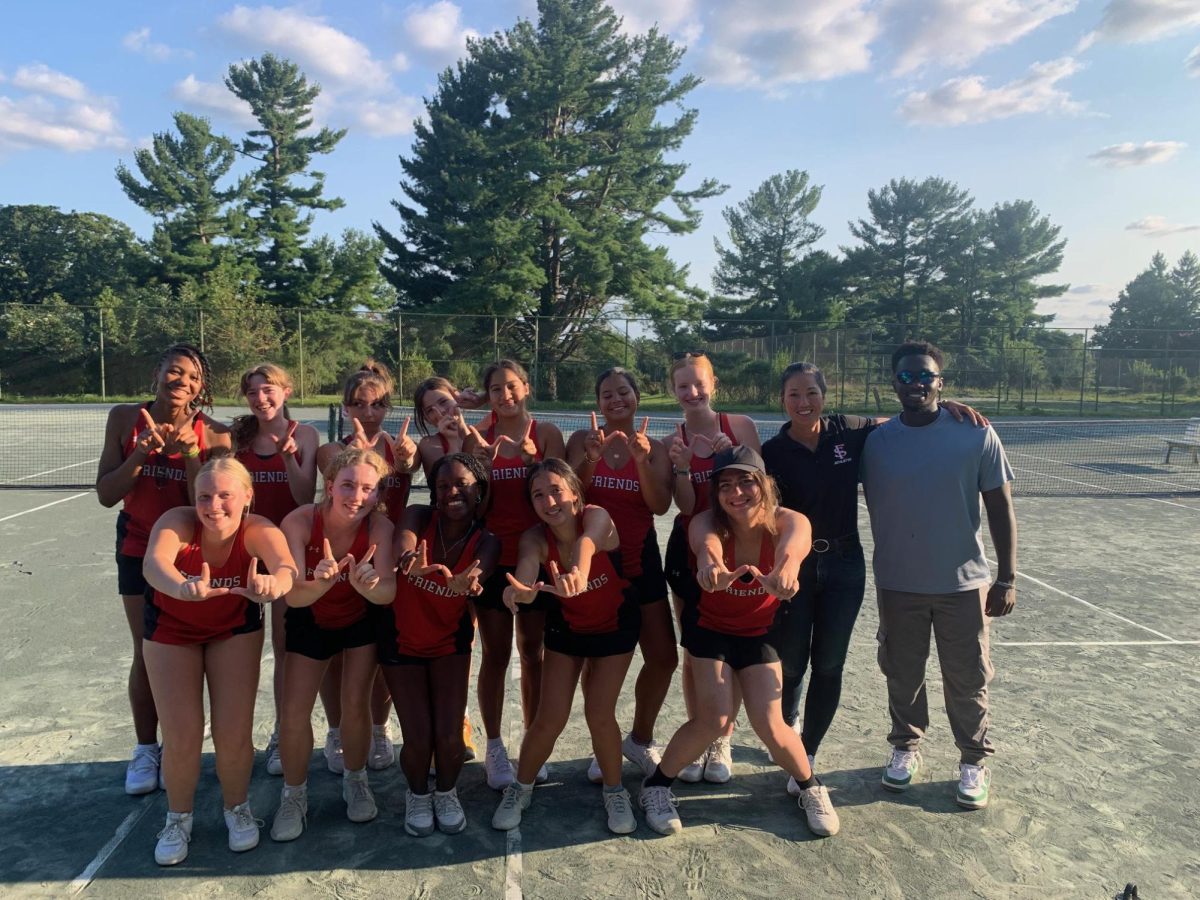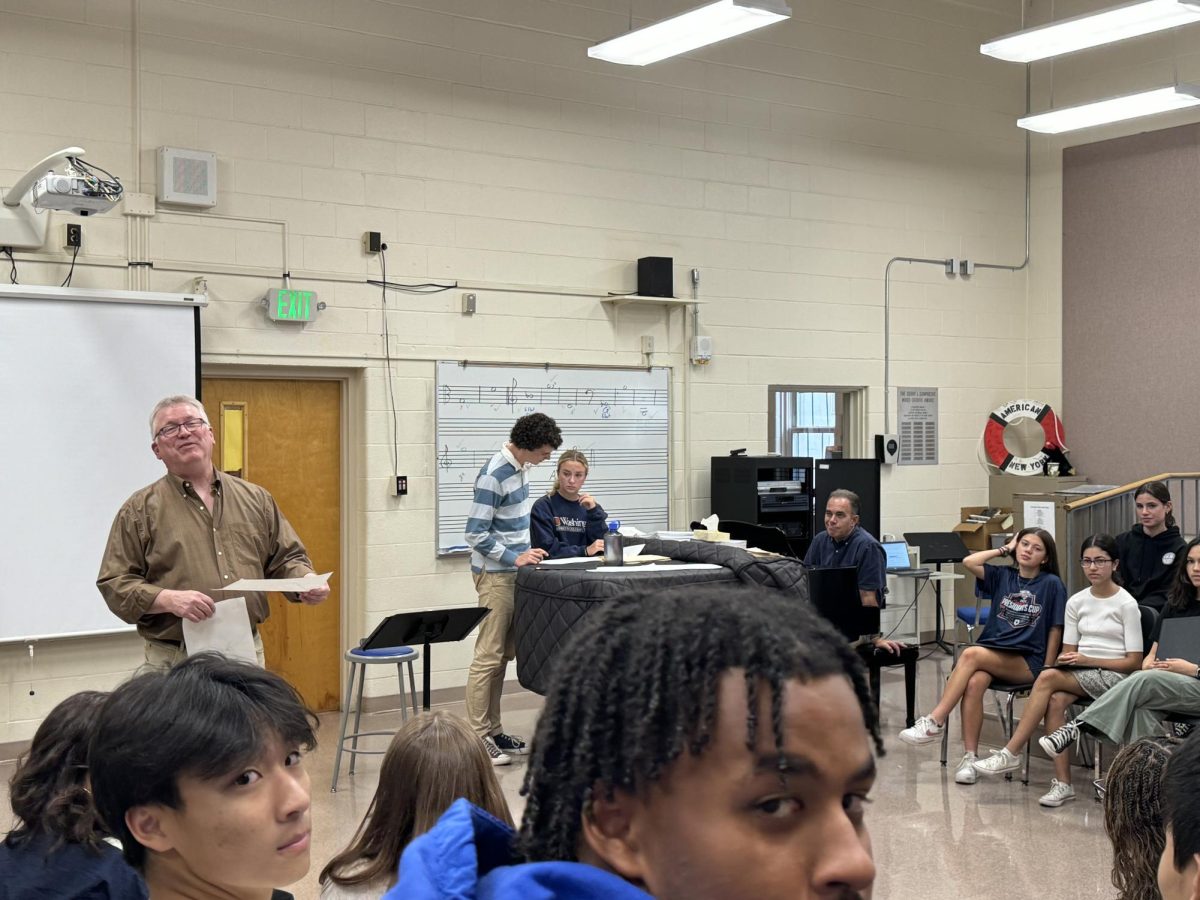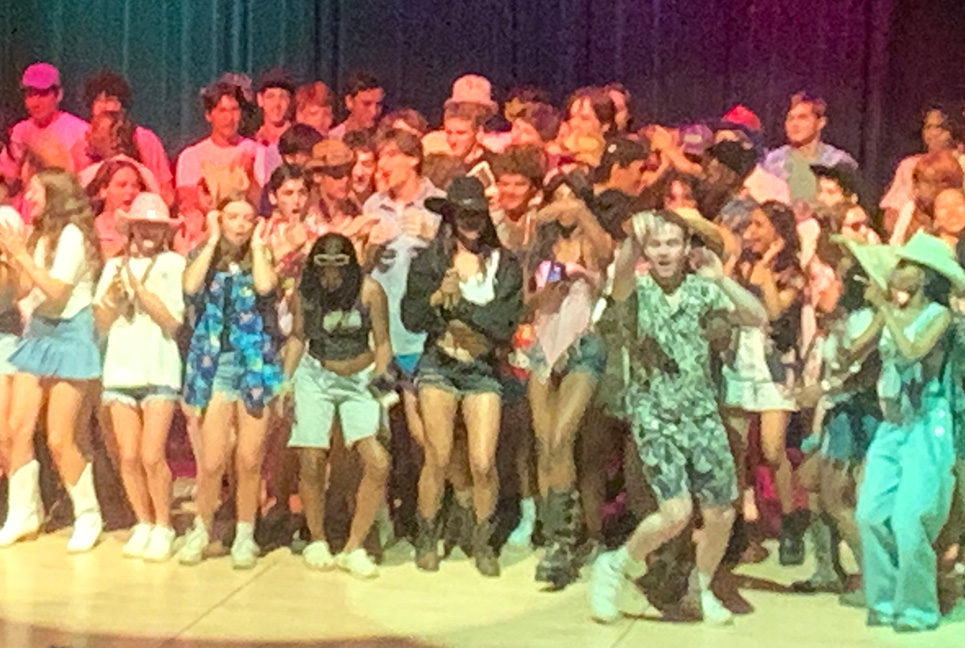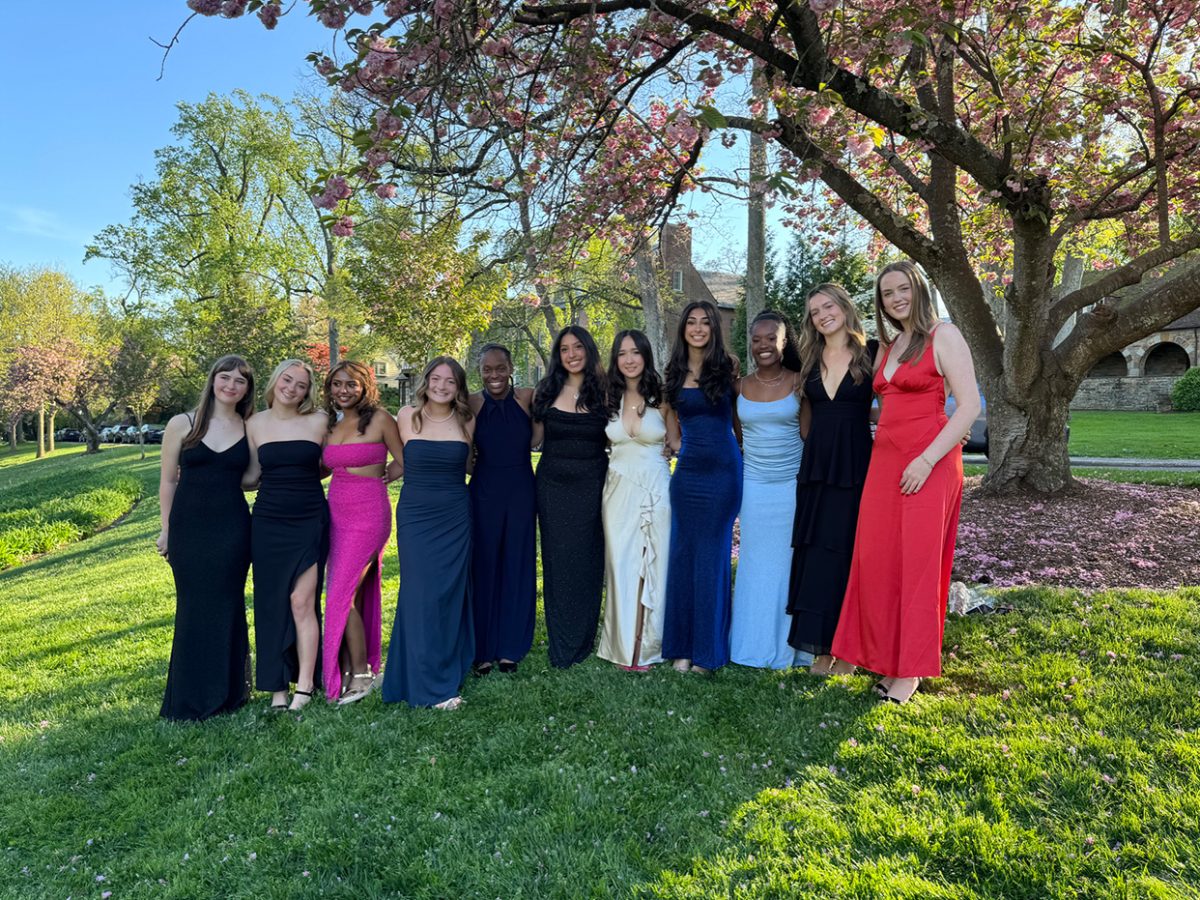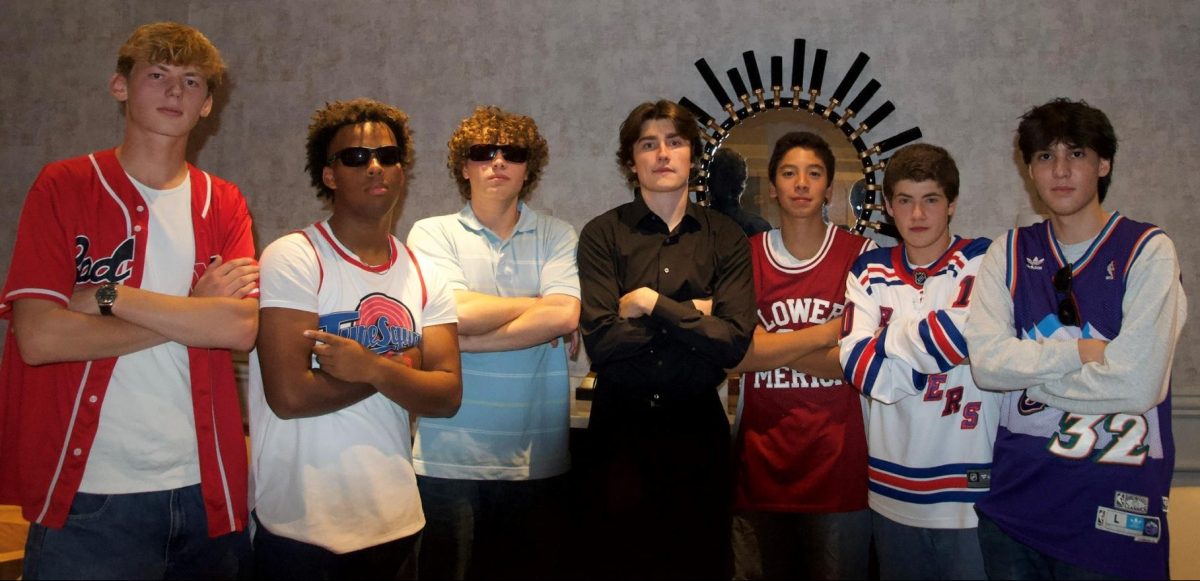Out and About on Campus
The number of out LGBTQ+ faculty at Friends has grown in recent years, and students say they appreciate the change
A shelf of LGBTQ+-focused books and decorations in Mary Wiltenburg’s Upper School English classroom.
November 13, 2019
Last fall, history teacher Travis Henschen sent out a campus wide message inviting LGBTQ+ teachers and staff to a small get-together. Out of the entire Friends School community, only three people felt comfortable enough to attend. Mr. Henschen, who has taught at the school for four years, wasn’t surprised.
“My second year in the Upper School, I think I was the only out Upper School teacher,” he says. “We were low in terms of teacher representation.”
This fall, when he and staff member Jessye Grieve-Carlson tried again to organize a gathering, eight people came.
“I got excited,” Henschen says. “Mostly for the students, because I know that it has an impact having out teachers. I didn’t have an out teacher until college.”
When we talk about diversity at Friends, racial diversity usually comes to mind. While that has improved significantly, and still deserves our focus, Friends is also starting to prioritize other types of diversity, including LGBTQ+ faculty and staff hiring. As of today, there are nine teachers and staff members employed at Friends who are “out” to both students and colleagues.
They are represented throughout our community. Some are young teachers, veterans, single, partnered, and parents. Half also identify as people of color.
For many students, even this small increase in numbers makes a big difference.
“Having out teachers makes me feel a lot more safe,” said sophomore Margaret Valle. “It’s also helped me deal with a lot of issues that I probably wouldn’t have gone to faculty with otherwise.”
Classmate Claire Pupa agrees.
“Having teachers who are out has affected my life really positively,” says Claire, who is active in the Upper School Gender-Sexuality Alliance (GSA). “It makes me feel more included, and like there are safe people to talk to.”
The LGBTQ students interviewed for this piece collectively agreed that having out teachers made them feel more safe. Just last week, when a student used the F-slur in earshot of a fellow student, she came to Henschen to report it.
But more work needs to be done. Most students will go through their whole education at Friends without having an out teacher. Of 234 total faculty and staff, having only ten who are comfortable coming out to students and coworkers is statistically low. As of 2019, there are zero out teachers in the Middle School.
“When you don’t see yourself reflected in the world, you start to believe that something is just not right with you,” says 3rd grade teacher Gita Deane, a who identifies as a lesbian.
Sophomore Ally Thorne knows that firsthand.
“I find that having out faculty members is helpful, because you feel more comfortable with people who are like you,” she says, “or similar to your family, because I have two moms.”
Students say that, when they see their identity reflected in their teachers, it makes it easier to make connections with them.
Theo Geroge says he’s glad to hear it. Mr. George works on the marketing and communication team at Friends, and is an out transgender man. He says he’s glad if his presence helps students to embrace their full selves.
“To be a person of color and to be out, I’m hoping that there are a lot of other students who share different parts of my story and look to me and say: ‘Oh, who I am is okay. This person is enjoying their life, and there is hope for me,’” he says. “I wish I had someone like myself to look to when I was in school.”
Gab Sussman, a new addition to the Friends community who teaches 4th grade, says: “If I’m hoping for a world where people can be their authentic selves and connect deeper, then we need to be vulnerable with each other. As a teacher, I need to model that vulnerability to show kids that they can be vulnerable too.”
Students appreciate that, says GSA co-head Maria Angelos.
“It’s cool to have someone who you know is going to be on your side if any issues come up. Also someone who’s older that you can relate to about certain things,” she says. “It’s nice when they’re out to everyone. It normalizes it for the whole school.”


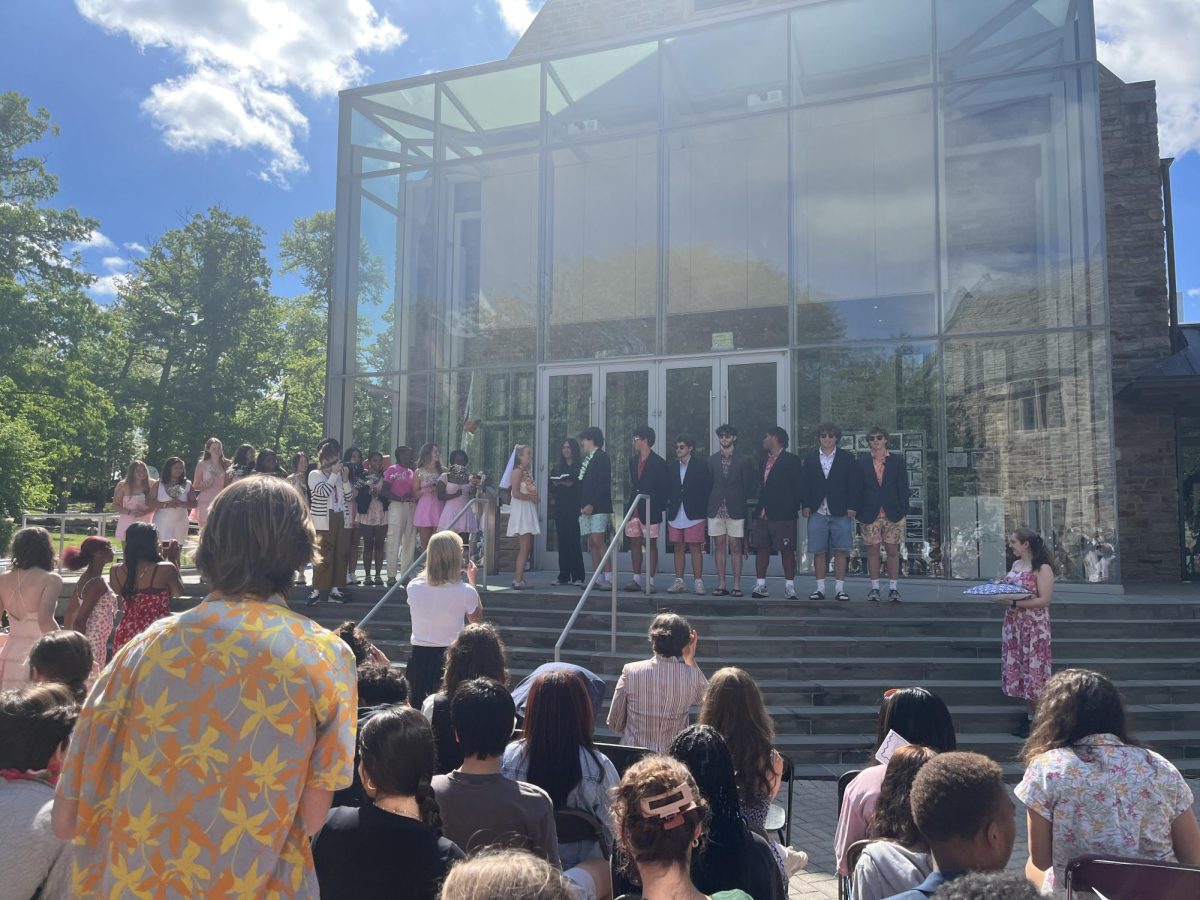
![A Phone Ban at Friends? [Podcast]](https://thequakerquill.org/wp-content/uploads/2025/05/magenta-VrRT19_ZjUY-unsplash-1200x900.jpg)
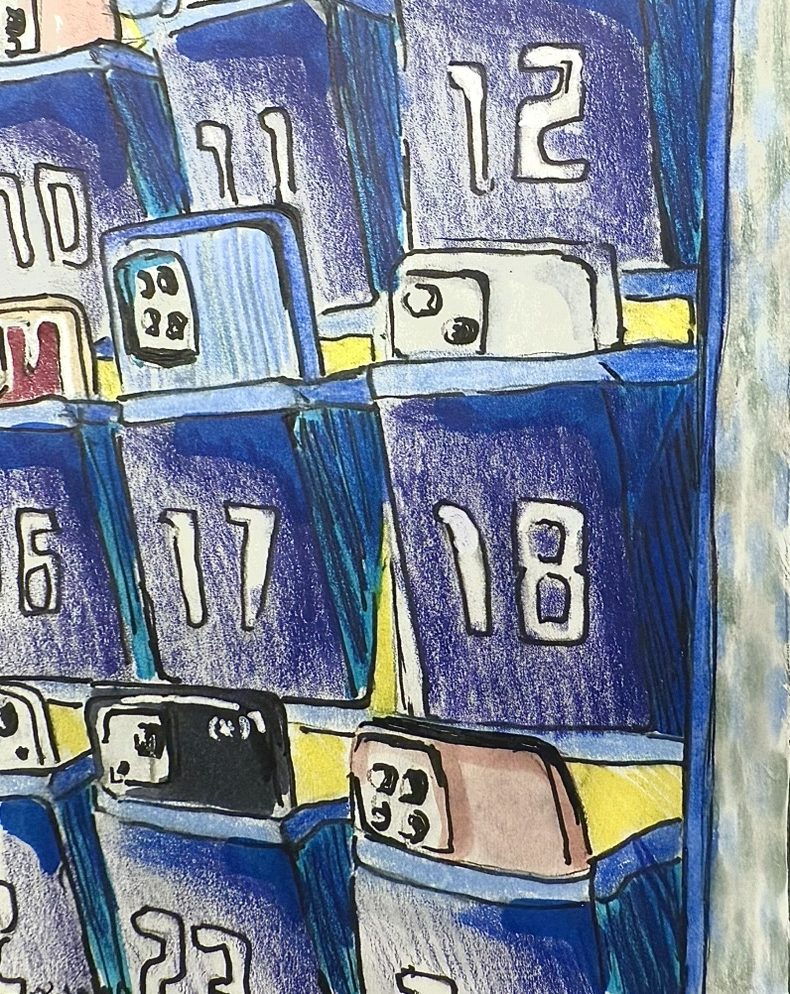


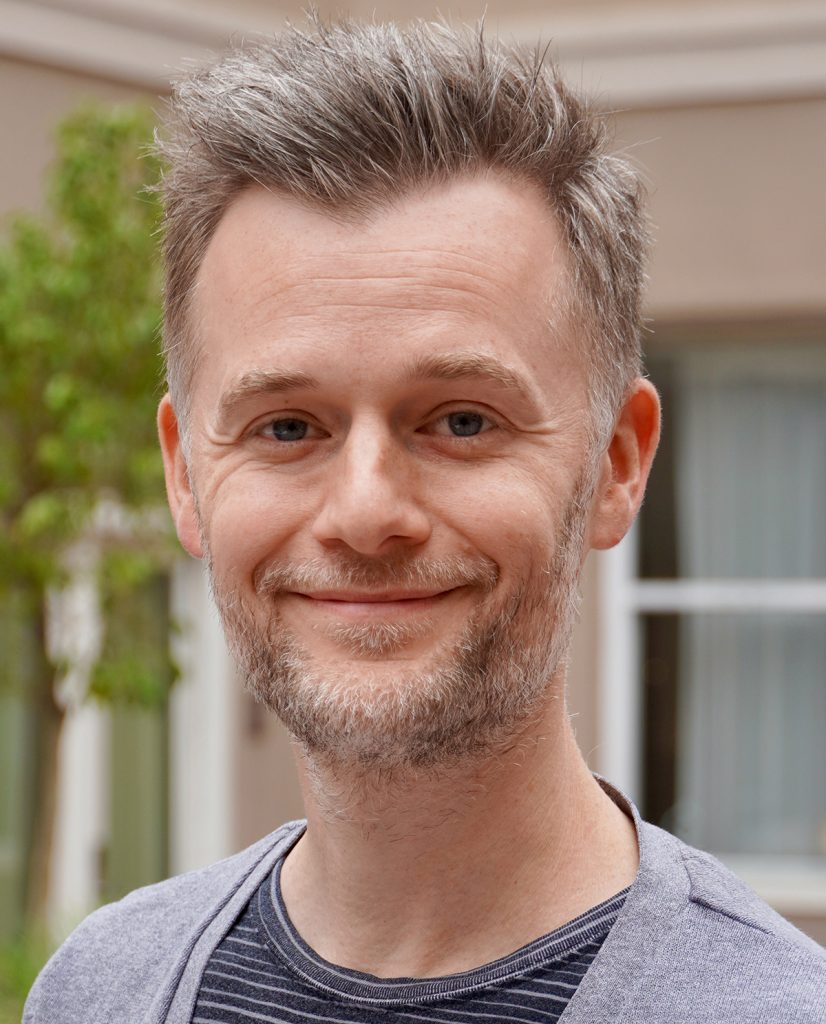

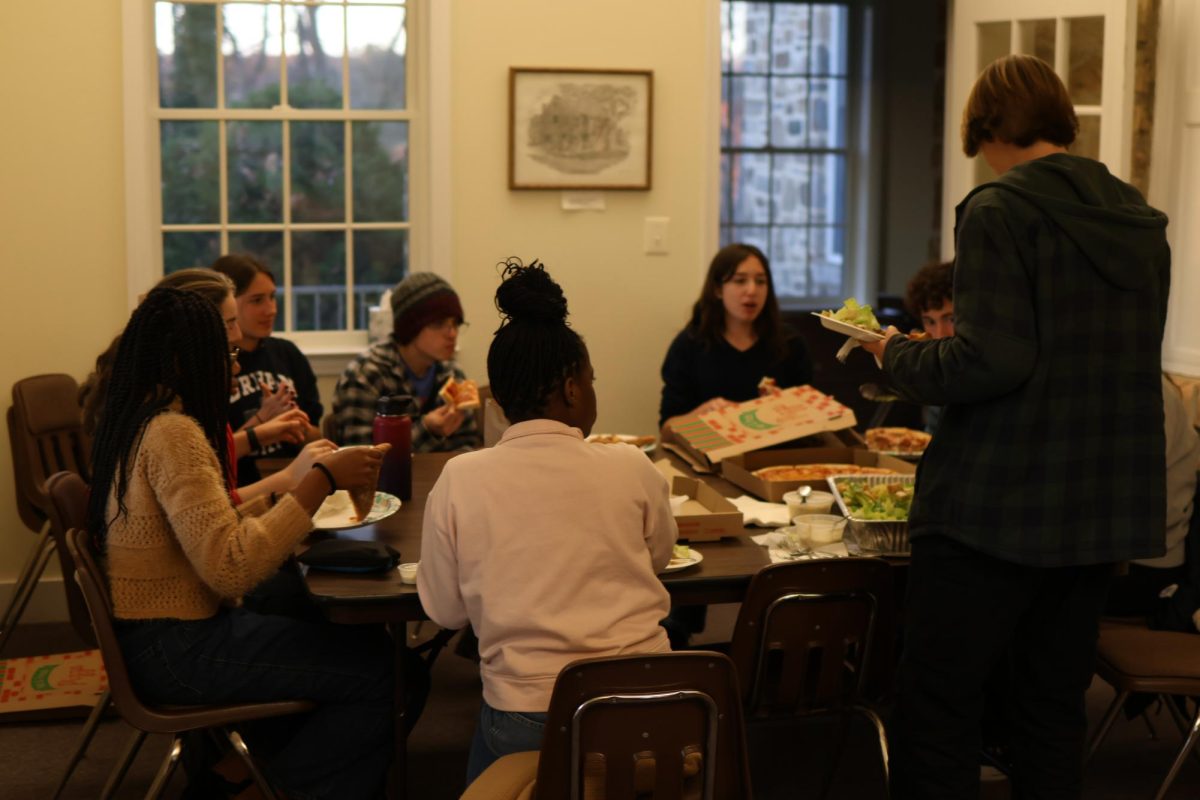

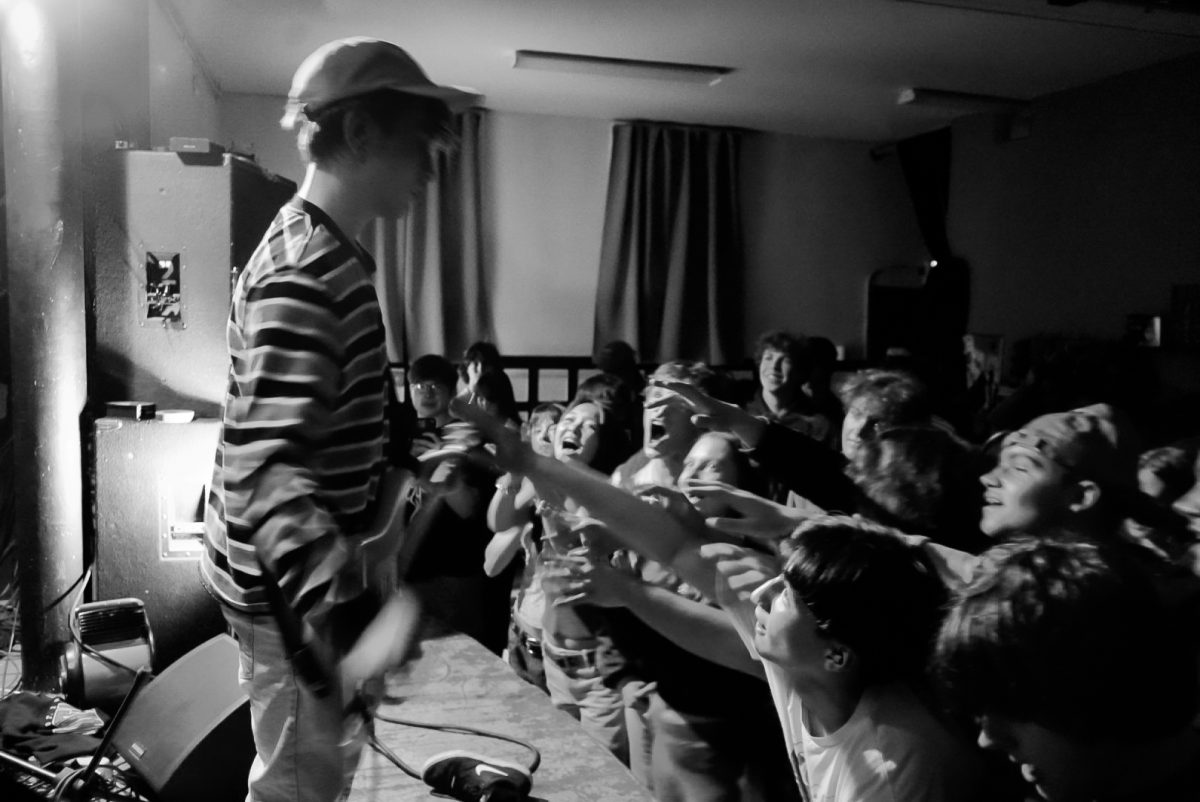

![How Freestyle Club Began [Podcast]](https://thequakerquill.org/wp-content/uploads/2025/05/charly-alvarez-Jv9untmB7G4-unsplash-1200x800.jpg)
